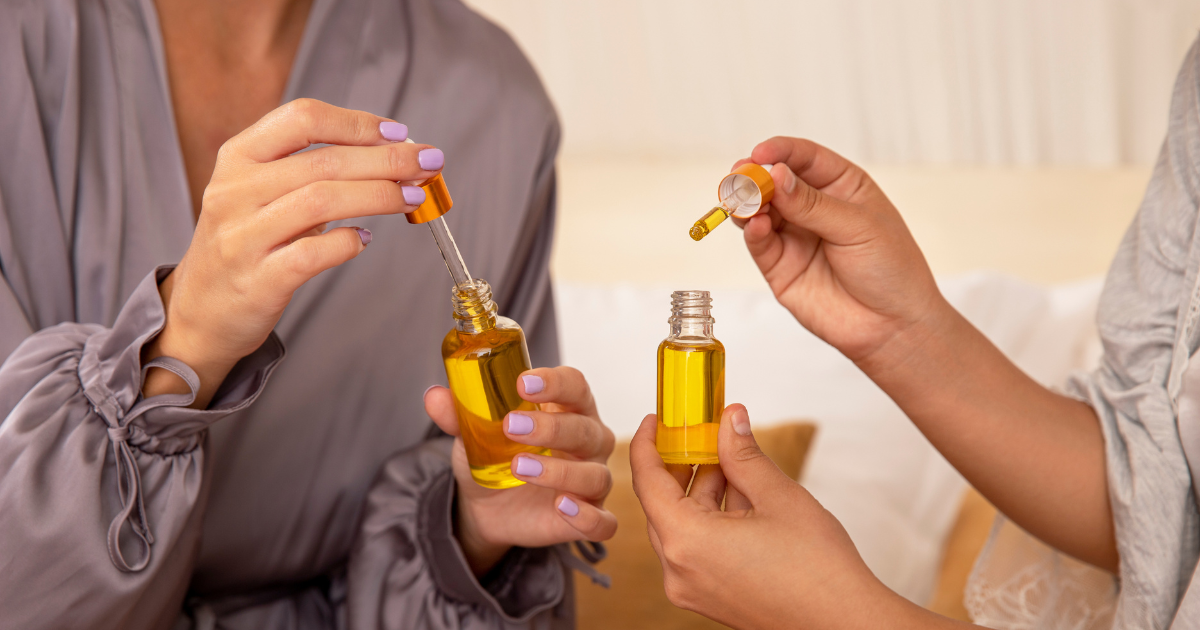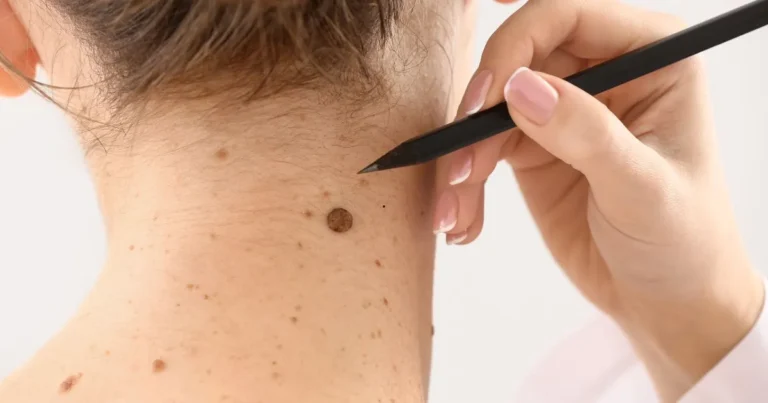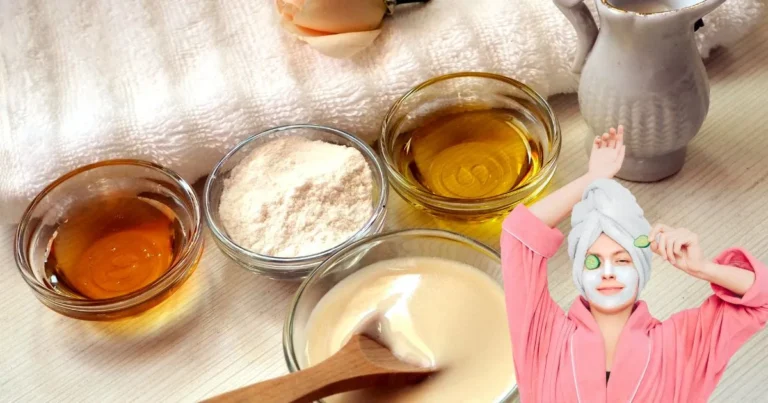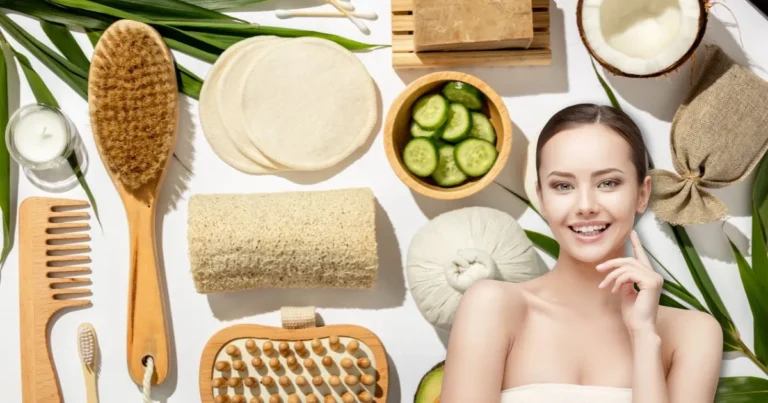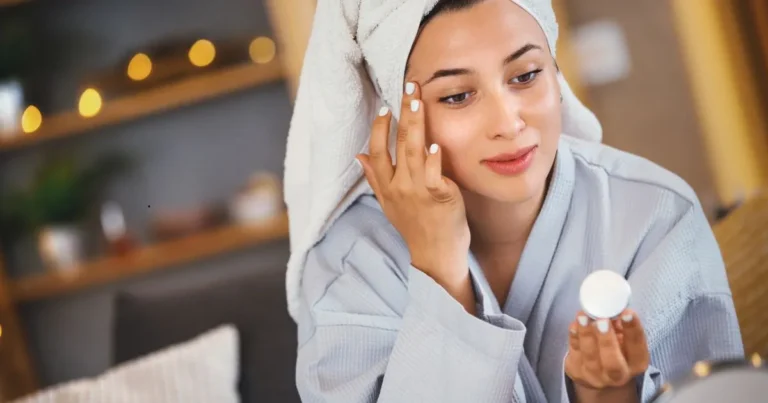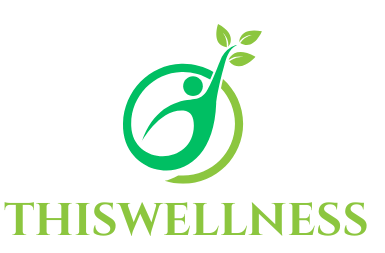Top 7 Essential Oils for Skin: Natural Ways to Nourish and Protect
Table of Contents
Your skin is more than just your body’s largest organ—it reflects your health, your habits, and even your emotions. If you’ve ever stared into the mirror and wished for a more radiant, youthful, or calmer complexion, you’re not alone. Many people are turning away from chemical-laden skincare products and leaning into the healing power of nature. One of the most powerful natural tools available? Essential oils.
In this guide, you’ll discover the top 7 essential oils for skin, learn how to use them safely, and explore easy DIY recipes you can start today. Whether you’re battling dryness, dullness, breakouts, or just want to age gracefully, these oils offer a gentle, effective solution.
Why Choose Essential Oils for Skin Care?
Benefits of Using Essential Oils for Skin
- Rich in antioxidants, vitamins, and anti-inflammatory compounds
- Nourish, hydrate, and rejuvenate skin naturally
- Reduce fine lines, acne, redness, and other skin concerns
- Offer aromatherapeutic benefits—relaxation, stress relief, and better sleep
What Makes an Oil “Essential”?
Essential oils are concentrated plant extracts that retain the natural smell and therapeutic properties of their source. They’re powerful, versatile, and have been used in skincare rituals for centuries. Thanks to their small molecular size, they penetrate deeply into the skin, delivering nutrients directly to where they’re needed most.
Top 7 Essential Oils for Skin
Each essential oil listed below is backed by both historical usage and modern research. When used correctly, they can become an invaluable part of your daily skincare routine.
1. Lavender Essential Oil
Best for: Sensitive, irritated, or acne-prone skin
Lavender essential oil is one of the most versatile oils for skin care. It’s known for its calming scent, but its real power lies in its ability to soothe inflammation and speed up healing. If your skin is prone to redness or breakouts, lavender can help rebalance and calm it down.
Key Benefits:
- Reduces acne and inflammation
- Promotes skin regeneration
- Calms sensitive or sunburnt skin
How to Use:
- Add 2–3 drops to a teaspoon of jojoba oil for a calming night serum
- Mix into your bath for full-body skin benefits
2. Tea Tree Essential Oil
Best for: Oily and acne-prone skin
Tea tree oil is a powerhouse when it comes to fighting blemishes. Its antimicrobial and antibacterial properties help keep your pores clean and prevent future breakouts.
Key Benefits:
- Clears up acne without drying your skin
- Fights bacteria and reduces inflammation
- Helps control oil production
How to Use:
- Mix 1 drop with aloe vera gel for a spot treatment
- Add to your facial cleanser to boost its purifying power
3. Frankincense Essential / Oil Essential Oils for Skin
Best for: Dry, aging, or uneven skin tone
Frankincense is often called the king of oils—and for good reason. It promotes skin cell regeneration, reduces the appearance of wrinkles, and evens out skin tone.
Key Benefits:
- Smooths fine lines and wrinkles
- Tones and tightens the skin
- Helps fade scars and sunspots
How to Use:
- Combine with rosehip oil for a powerful anti-aging serum
- Apply a few drops to a damp cloth and dab onto problem areas
4. Rosehip Oil (Technically a carrier oil but rich in essential properties)
Best for: Scarring, pigmentation, and dull skin
Rosehip oil is packed with vitamins A and C, both of which are essential for skin regeneration. It’s known for fading scars and improving overall skin texture.
Key Benefits:
- Encourages skin regeneration
- Fades dark spots and acne scars
- Improves elasticity
How to Use:
- Use daily as a base serum
- Combine with frankincense or lavender oil for enhanced results
5. Geranium Essential Oil
Best for: Hormonal or combination skin
Geranium oil is known for its balancing properties. It regulates oil production, improves elasticity, and tones the skin, making it a favorite for those dealing with combination or hormonal skin changes.
Key Benefits:
- Balances sebum production
- Minimizes pores
- Promotes glowing skin
How to Use:
- Blend with jojoba oil and use as a toner
- Add to your face mask for an extra boost
6. Chamomile Essential Oil
Best for: Red, irritated, or eczema-prone skin
Chamomile is as soothing for your skin as it is for your mind. If your skin is reactive or suffers from inflammation, this oil can help calm things down.
Key Benefits:
- Reduces redness and irritation
- Strengthens the skin barrier
- Helps with conditions like rosacea or eczema
How to Use:
- Add to unscented lotion and apply to affected areas
- Combine with coconut oil for a calming nighttime balm
7. Ylang Ylang Essential Oil
Best for: Dull, dry, or mature skin
Ylang ylang promotes healthy skin by balancing oil production and enhancing circulation. It’s also known to reduce the appearance of fine lines and improve skin texture.
Key Benefits:
- Promotes skin renewal
- Softens lines and tightens skin
- Enhances natural radiance
How to Use:
- Add to night cream or serum
- Mix with carrier oil for facial massage
How to Use Essential Oils for Skin Safely
Dilution Guide and Recommended Carrier Oils
| Essential Oil | Recommended Carrier Oil | Face Dilution Ratio |
|---|---|---|
| Lavender | Jojoba oil | 1–2% (1–2 drops/tsp) |
| Tea Tree | Aloe vera gel | 1% |
| Frankincense | Argan oil | 2% |
| Geranium | Rosehip oil | 2% |
| Chamomile | Coconut oil | 1% |
Application Methods
- Spot treatment with diluted oils
- Full-face serum or moisturizer
- Add to facial masks or steam water
Important: Always do a patch test before full application.
DIY Recipes Using Essential Oils
Nourishing Night Serum
| Ingredient | Quantity |
| Jojoba oil | 1 tablespoon |
| Rosehip oil | 1 tablespoon |
| Lavender oil | 2 drops |
| Frankincense oil | 2 drops |
| Vitamin E oil (optional) | 1 capsule |
Instructions: Mix all ingredients in a dark glass dropper bottle. Use 2–3 drops each night on clean skin.
Acne-Calming Face Mask
| Ingredient | Quantity |
| Bentonite clay | 1 tablespoon |
| Aloe vera gel | 1 tablespoon |
| Tea tree oil | 1 drop |
| Chamomile oil | 1 drop |
Instructions: Mix ingredients into a smooth paste. Apply for 10–15 minutes, then rinse with lukewarm water.
FAQs: Essential Oils for Skin
Are essential oils safe for daily use on skin?
Yes, but always dilute with a carrier oil. Overuse can lead to irritation. Less is more.
Which essential oil is best for glowing skin?
Ylang ylang, frankincense, and geranium are excellent for restoring radiance.
Can I apply essential oils directly on my face?
Direct application is not recommended unless it’s a very mild oil like lavender, and even then, dilution is safer.
What’s the best essential oil for dry skin?
Chamomile and frankincense help moisturize and strengthen dry skin.
Conclusion: Let Nature Take the Lead
Now that you know the top 7 essential oils for skin, you can take a more empowered, natural approach to skincare. These oils aren’t just trendy—they’re time-tested remedies supported by science and tradition.
Start simple. Choose one oil that suits your skin needs, and experiment with a DIY blend or serum. Over time, you’ll notice not only improved skin texture and tone but a deeper connection with your self-care routine.
Ready to transform your skincare naturally? Start today with one oil and one change. Your skin—and your confidence—will thank you.
Liked this guide? Share it with a friend who needs a skincare glow-up. And don’t forget to bookmark this page—you’ll want to come back for more recipes and tips!

